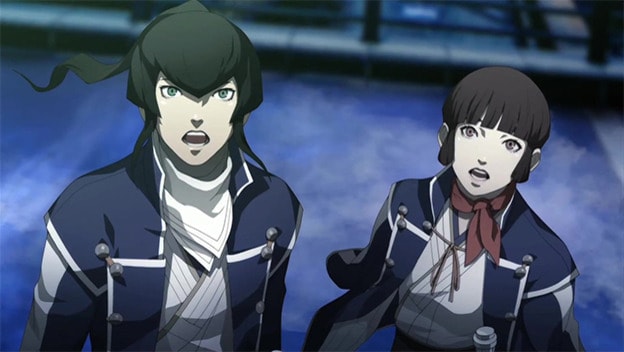Development companies come and go every day in the gaming industry. Success is fickle, and who is on top one day can be filing for bankruptcy the next. However, once a developer or publisher has made a name for themselves, instead of dying off and fading away into the pages of history, they are normally bought out or absorbed by another parent company. Thus is the imminent fate of Atlus, the game developer/publisher famous for the long-running Persona/Shin Megami Tensei series, Catherine , and the soon-to-be released Dragon’s Crown .
It’s not that Atlus is a bad company, financially corrupt, or inept–their parent company is the one with the problems. Index, the umbrella corporation that is supposed to shield Atlus from financial storms, has some serious holes in it. Not the least of which is being in an enormous amount of debt, 24.5 Billion Yen (roughly 246 Million Dollars), that has caused the company to file for Civil Rehabilitation, which is the Japanese version of bankruptcy. This move came in early July, and their stock, as reported by Bloomberg Japan , was delisted as of July 28, 2013.
With Dragon’s Crown receiving critical praise (read our review here ) and about to hit store shelves, what does this mean for Atlus? Well, surprisingly little, really. As far as anyone can tell, it is business as usual for Atlus. Plus, it doesn’t hurt that companies have put in substantial bids for the developer in the auction proceedings to the tune of 20 Billion Yen (about 200 Million Dollars), SEGA among them. For now, Index is reviewing the bids and candidates and will make a formal announcement at the end of the month. So we will just have to wait and see where Atlus will land.
But this chain of events, which in most industries would be disastrous for a company, looks to have had virtually no effect on the developer. This says something pretty profound about the gaming industry–once you make a name for yourself, you can survive almost anything. Take SEGA for example. Before PlayStation and Microsoft entered the scene, they were a major player in the console industry with the Genesis, the Saturn, and the final nail in their console coffin–the Dreamcast. But even though things didn’t work out in the console biz, today SEGA is still a name that is synonymous with gaming. Although this parallel between SEGA and Atlus is loose at best, both examples show the resilience of the industry in tough times as long as you have a name gamers know and trust.

The short answer seems to be that we have not heard the last of Atlus. As the creators of some of the most unique games in our industry, their contributions have not gone unnoticed by major game companies, which looks to be their saving grace. They remain a viable company, and with bids that equal more than 80 percent of Index’s total debt, it looks like they will be gracing the screens of gamers everywhere for years to come. I, for one, am glad.
